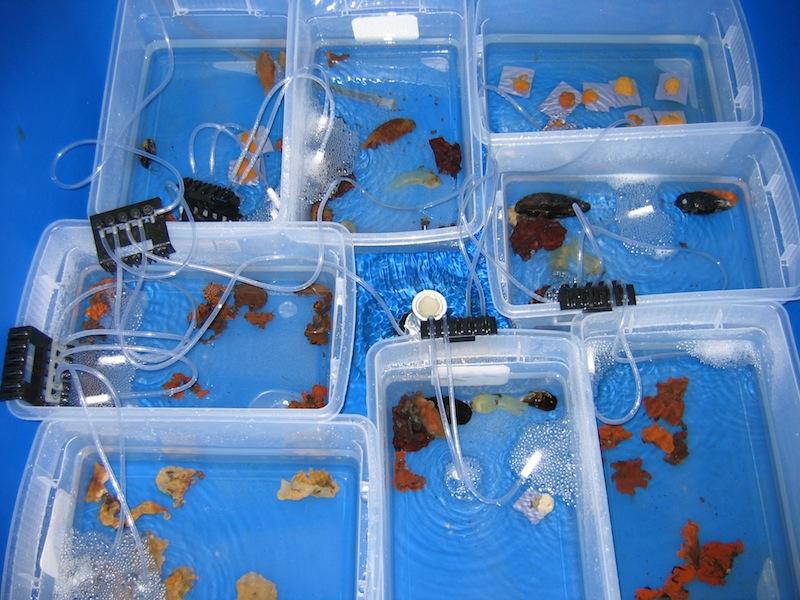The field of biodiversity and ecosystem function typically considers the consequences of human-driven extinctions. However, biological invasions can also increase the diversity of some guilds. While we know that the impact of individual invaders can be immense, many exotic species appear to have little impact. As exotic species diversity continues to rise, will there be any impacts of exotic diversity per se? Should there be cause for concern?
In marine communities, my work has shown that the many non-native species are sessile invertebrate filter feeders. These exotic species may alter the amount and consistency of food for other small native species in marine ecosystems. In highly invaded fouling communities, I examined the effects of increases in exotic filter feeder diversity on the removal of plankton. My results showed that diverse mixtures of natives and exotics do not filter water differently than diverse communities of natives. However, increases in exotic species diversity may increase the consistency of water filtration through time. Invasions may thus be decreasing the amount of energy and nutrients that can be channeled into grazers.
Relevant references
Byrnes, J.E. and Stachowicz, J.J. 2009. Short and Long-Term consequences of increases in exotic species richness on water filtration by marine invertebrates. Ecology Letters. 8: 830-841. [doi] [pdf]
Byrnes, J.E., Reynolds, P.L., Stachowicz, J.J. 2007. Invasions and extinctions reshape coastal marine food webs. PLoS One. 2: e295. [doi] [pdf]

